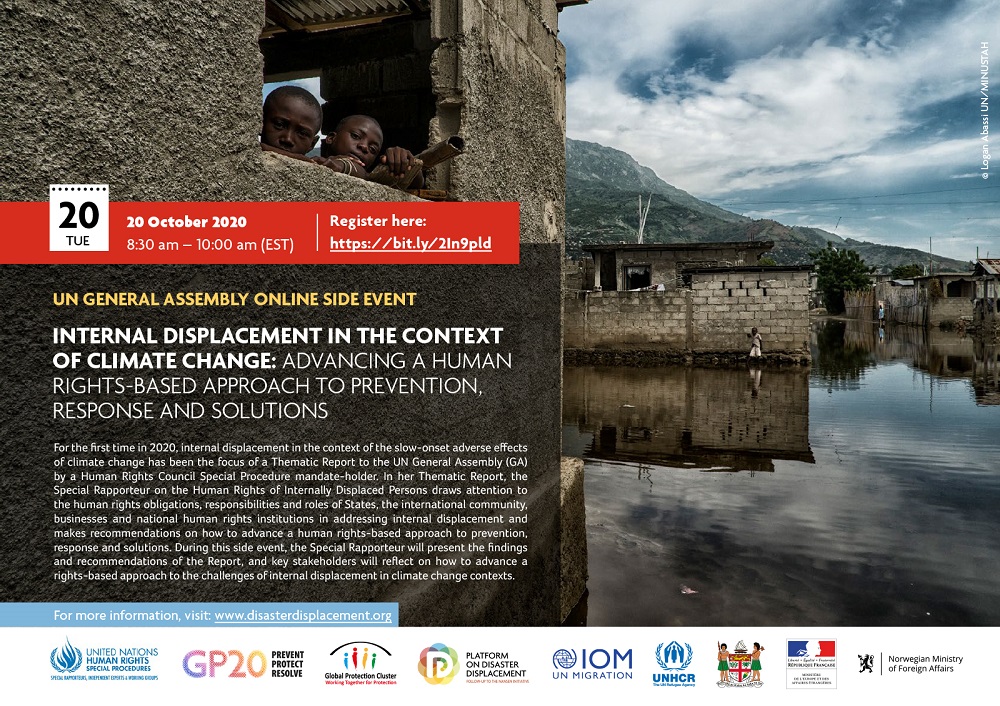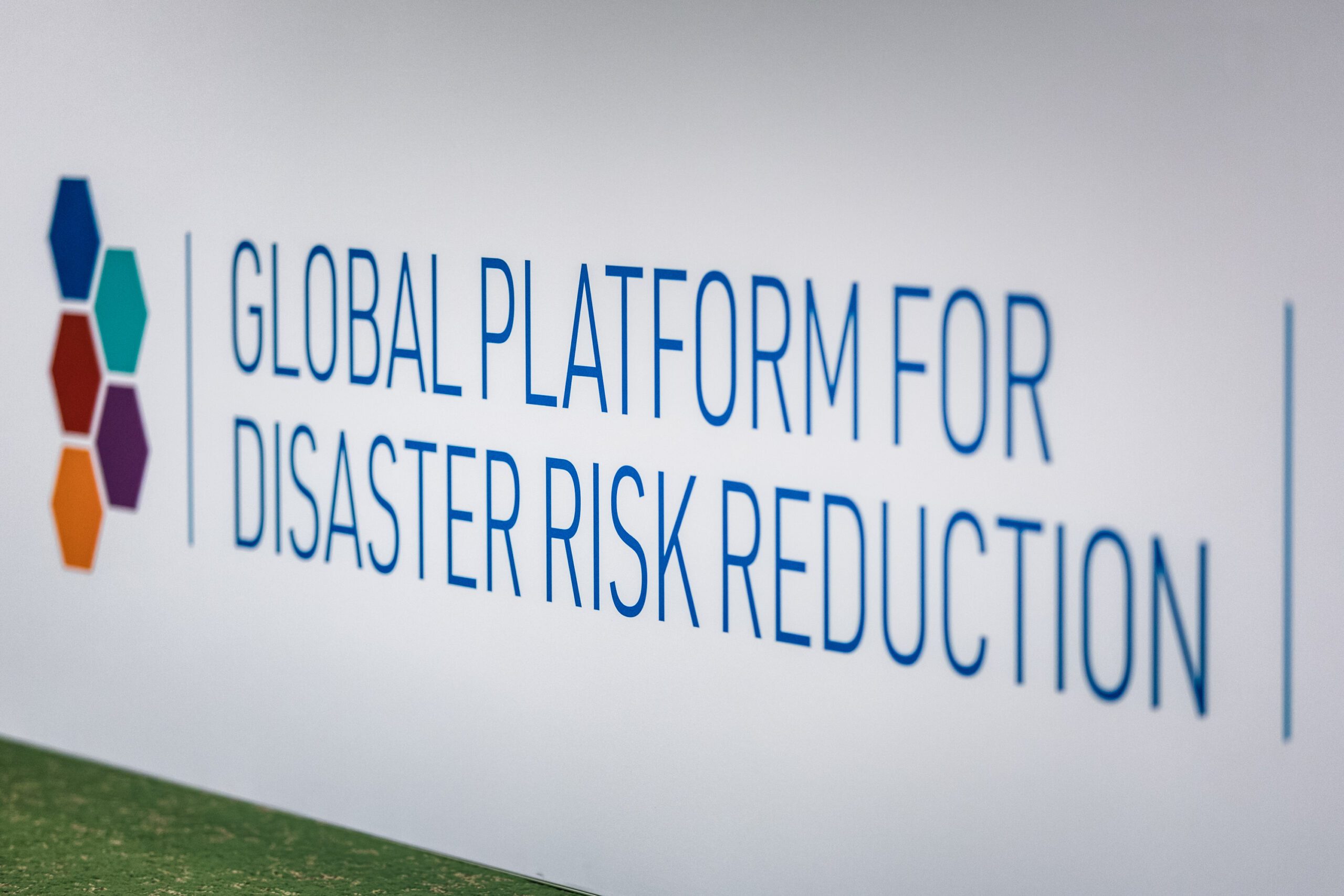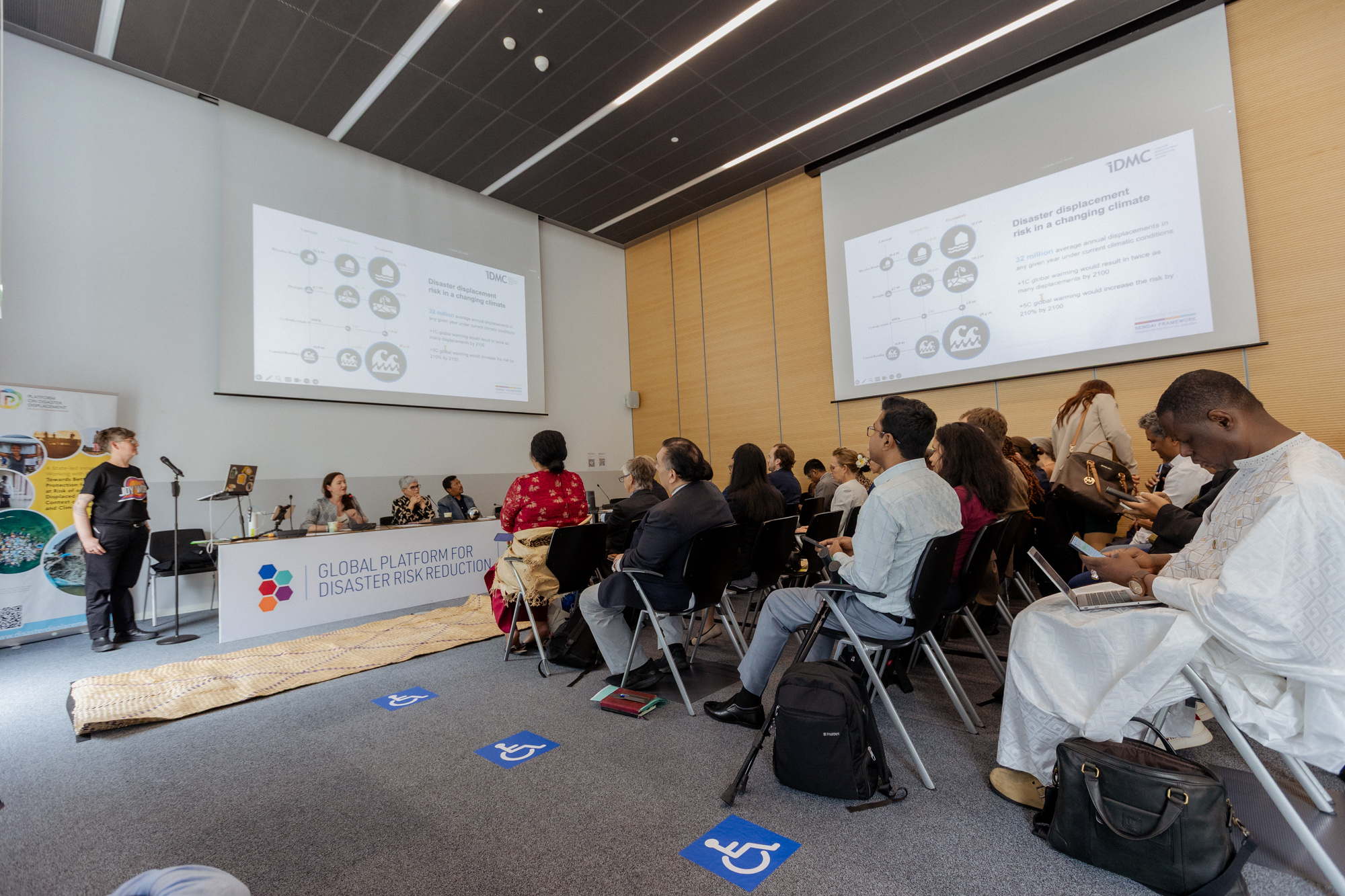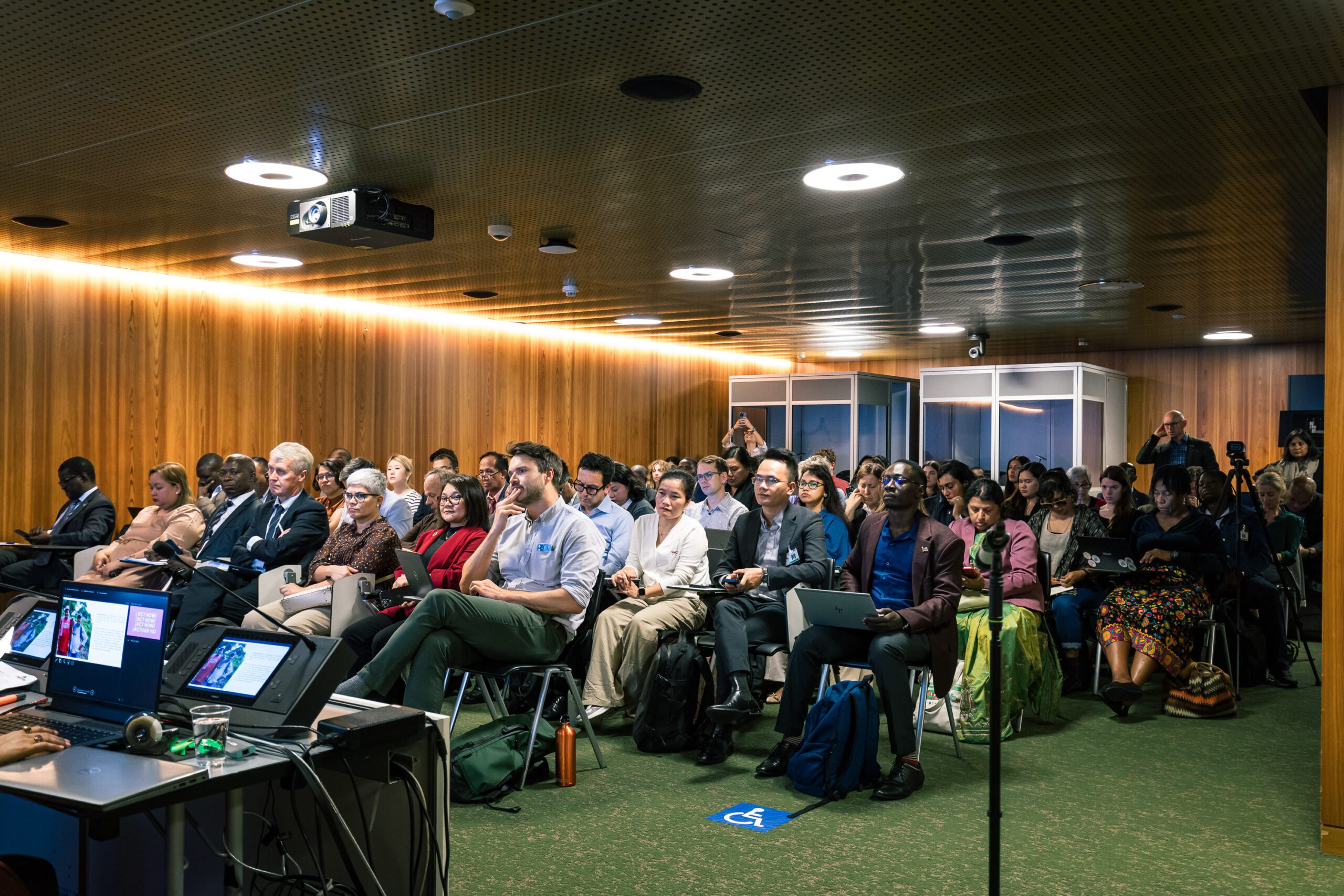Online Side Event | Internal Displacement in the Context of Climate Change: Advancing a Human Rights-based Approach to Prevention, Response and Solutions

Internal Displacement in the Context of Climate Change: Advancing a Human Rights-based Approach to Prevention, Response and Solutions
Online Side event on the Thematic Report of the Special Rapporteur on the Human Rights of Internally Displaced Persons to the Third Committee of the UN General Assembly at its 75th Session
Tuesday 20 October 2020, 08:30 am – 10:00 am (Eastern Standard Time)
Please Register at: https://bit.ly/2In9pld
- Background
Internal displacement linked to the adverse effects of climate change is already a global reality and it is expected to increase over the coming years and decades[1]. Displacement, with climate change as one of the drivers, affects regions across the world, but countries and communities in certain areas, such as low-lying coastal areas, small island States and Arctic ecosystems, are more exposed and vulnerable to the adverse effects of climate change and therefore at higher risk of displacement.
Displacement in the context of the adverse effects of climate change creates humanitarian challenges, affects human rights, undermines development and may, in some instances, affect security. The issue lies at the intersection of various policy and action areas, including human rights, humanitarian assistance, disaster risk reduction, climate change action, sustainable management of natural resources and sustainable development. To prevent such displacement, responding to its consequences and finding solutions will require integrated and comprehensive action from a wide range of stakeholders.
The challenges of addressing displacement in the context of disasters and the adverse effects of climate change are increasingly being recognized by the international community. For example, the UN Guiding Principles on Internal Displacement include those displaced in the context of disasters. The 2015 Agenda for Humanity calls for a new approach to manage disaster displacement risks and address the assistance and protection needs of disaster displaced people. The Sendai Framework for Disaster Risk Reduction 2015–2030 includes measures to address displacement risks and strengthen the resilience of affected people and that of host communities, and under the UN Framework Convention on Climate Change (UNFCCC), there are commitments to scale up efforts and action to avert, minimize and address displacement related to the adverse effects of climate change. More recently, and recognizing the protection needs and challenges of internal displacement, the United Nations Secretary-General has established a High-Level Panel on Internal Displacement (HLP), whose scope of work also include persons displaced in the context of disasters and the adverse effects of climate change. At the same time, understanding and addressing displacement in the context of the slow-onset adverse effects of climate change can pose particular challenges, such as identifying the often interrelated multiple factors that drive human mobility in such contexts and the extent to which mobility is voluntary or forced. Achieving durable solutions can also be particularly challenging in these contexts, as slow-onset processes tend to be long-term and, in some instances, irreversible, resulting in a higher risk of protracted displacement.
In 2020 and for the first time[2], the particular challenges of internal displacement in the context of the slow-onset adverse effects of climate change have been the thematic focus of a Report to the UN General Assembly by a Human Rights Council Special Procedure mandate-holder. In her thematic Report to the Third Committee of the General Assembly at its 75th Session (https://www.undocs.org/A/75/207), the Special Rapporteur on the human rights of internally displaced persons draws attention to the particular challenges posed by internal displacement in the context of the slow-onset adverse effects of climate change, and its impacts on the enjoyment of the human rights of those affected. She looks at the human rights obligations, responsibilities and roles of States, the international community, businesses and national human rights institutions in addressing such internal displacement and makes recommendations to these actors on how to advance a human rights-based approach to prevention, response and solutions.
- Objective of the Webinar
This webinar is organized by the Special Rapporteur on the Human Rights of Internally Displaced Persons and the Platform on Disaster Displacement (PDD), a state-led initiative working to improve protection for people displaced in the context of disasters and the adverse effects of climate change, with the support of the Permanent Missions of France, Fiji and Norway to the United Nations in New York.
The objective of the event is to provide a public space to present, discuss and disseminate the findings and recommendations of the Thematic Report of the Special Rapporteur. It also aims to advance a discussion among different stakeholders, including Member States, international organizations and civil society organizations on how to advance a rights-based approach to prevent, respond and find solutions to the challenges of internal displacement in climate change contexts. In particular, the webinar aims to:
- reflect on the findings of the Thematic Report and its recommendations;
- identify specific challenges and risks faced by communities and countries most at risk to the adverse effects of climate change and displacement and discuss what is needed to better prepare for and address these challenges and risks;
- formulate further recommendations that can be taken up for consideration by the UN Secretary-General’s High-Level Panel on Internal Displacement and inform its work.
3. Agenda
| Opening of the Side Event | Mr. William Chemaly, Global Protection Cluster Coordinator |
| Welcome and Opening Remarks | His Excellency Ambassador Dr. Satyendra Prasad , Permanent Mission of Fiji to the UN in New York |
| Presentation of Thematic Report on Internal Displacement in the Context of the Slow-onset Adverse Effects of Climate Change | Ms. Cecilia Jimenez-Damary
Special Rapporteur on the human rights of internally displaced persons |
| Internal Displacement in the Context of Climate Change – Recommendations from a Small Island Developing State’s Perspective | Her Excellency Ambassador Ms. Amatlain E. Kabua,
Permanent Mission of Marshall Islands to the United Nations in New York. |
| Firsthand account and experience of internal displacement | Mr. Joseph Majier |
| Perspectives and Reflections from the Frontline of Climate Change | Ms. Robin Bronen, Alaska Institute for Justice |
| Humanitarian Response and Protection Coordination in the context of climate change, environmental degradation, and disasters. | Ms. Sarah Pallesen, Protection Cluster Coordinator in Chad |
| Takeaways for the High-Level Panel on Internal Displacement | Mr. George Okoth-Obbo, ASG/Secretary and Head of Secretariat,
UN Secretary-General’s High-Level Panel on Internal Displacement |
| Moderated Question and Answer Session | Mr. William Chemally, Global Protection Cluster Coordinator |
| Closing Remarks | Atle Solberg, Head of the PDD Secretariat |
[1] See IPCC, “2014: Summary for policymakers” and World Bank. 2018. Groundswell. Preparing for Internal Climate Migration. World Bank, Washington, DC.
[2] The Special Rapporteur also builds on the reports on climate change and internal displacement of her predecessors, Chaloka Beyani, Special Rapporteur on the human rights of internally displaced persons (A/66/285) and Walter Kälin, Representative of the Secretary-General on the human rights of internally displaced persons (A/64/214).
Useful Links
Register here to the online side event
Download the side event flyer
 Loading...
Loading...
Read our conversation with the Special Rapporteur on the Human Rights of IDPS
Download the Report on internal displacement in the context of the slow-onset adverse effects of climate change
 Loading...
Loading...
Learn more about the Special Rapporteur on the Human Rights of Internally Displaced Persons
Learn more about PDD’s work in our Workplan 2019-2022:
